Dimensioning equipment is essential across industries that demand high precision and accuracy. Whether in manufacturing or logistics, these tools ensure that products adhere to specifications and uphold quality standards. In this blog post, we’ll delve into the various types of dimensioning equipment, their applications, and the significance of calibration in preserving their accuracy.
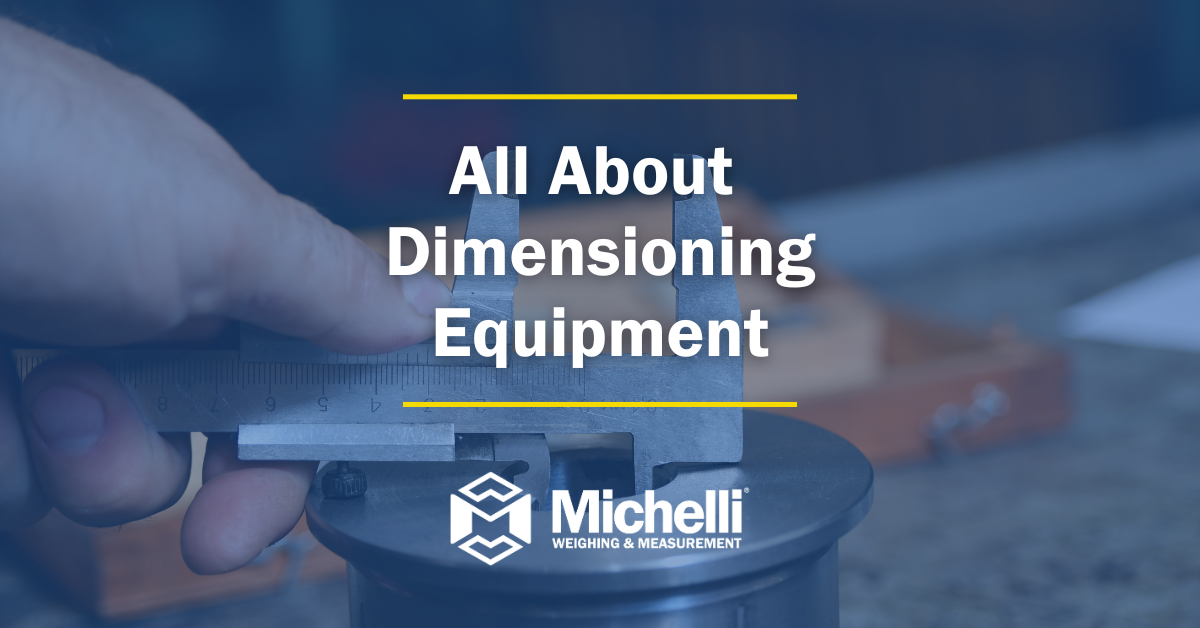
What is Dimensioning Equipment?
Dimensioning equipment refers to tools and devices used to measure the physical dimensions of objects. These measurements can include length, width, height, thickness, and even volume. Accurate dimensioning is essential for quality control, ensuring that parts and products fit together correctly and function as intended.
Types of Dimensioning Equipment
1. Calipers:
- Vernier Calipers: Offer precise measurements with a sliding scale. They are used for measuring internal and external dimensions as well as depths.
- Digital Calipers: Provide digital readouts for easy and accurate measurements. They are user-friendly and reduce the chance of human error.
- Dial Calipers: Feature a dial display for measurements, making them easier to read than vernier calipers but still requiring careful handling.
-
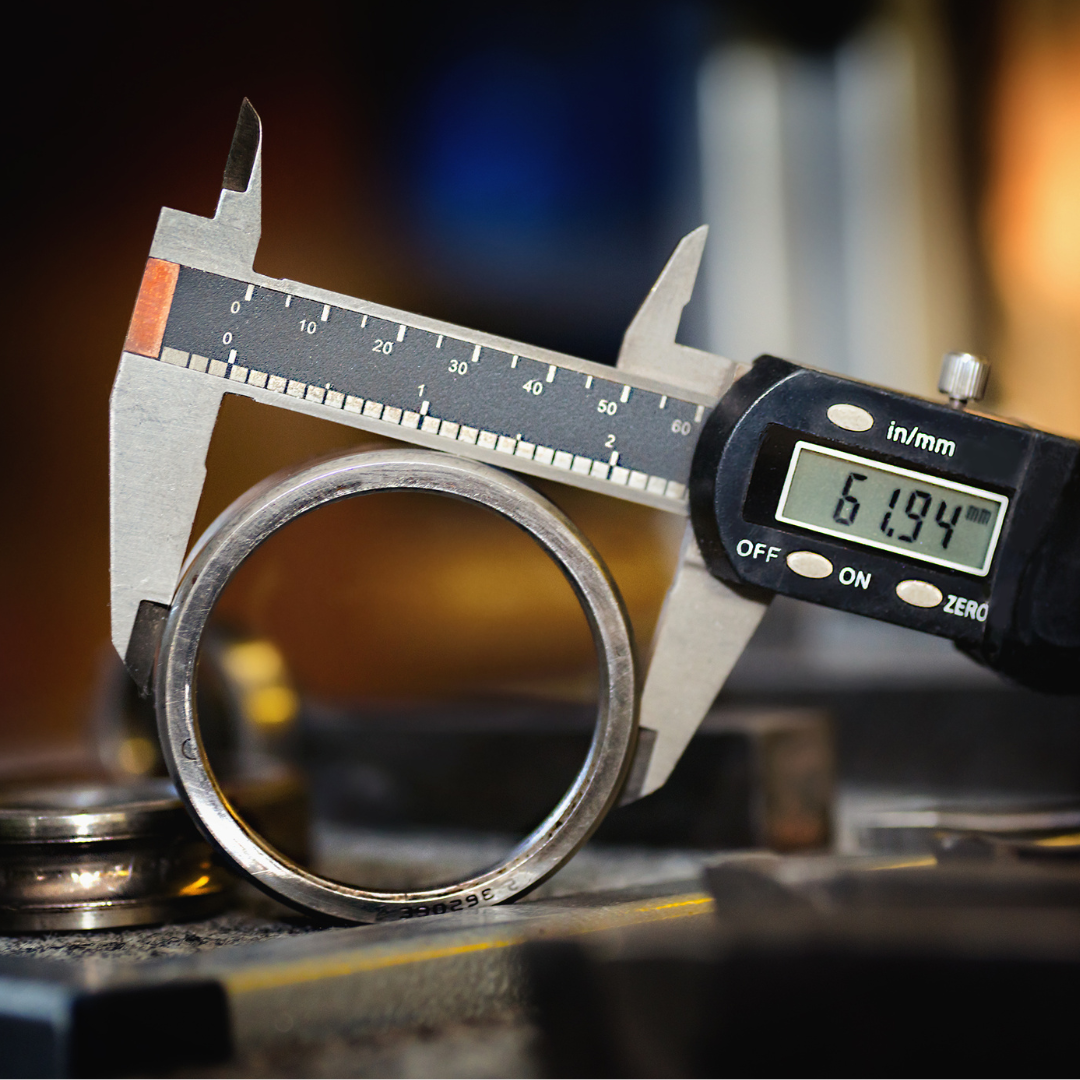
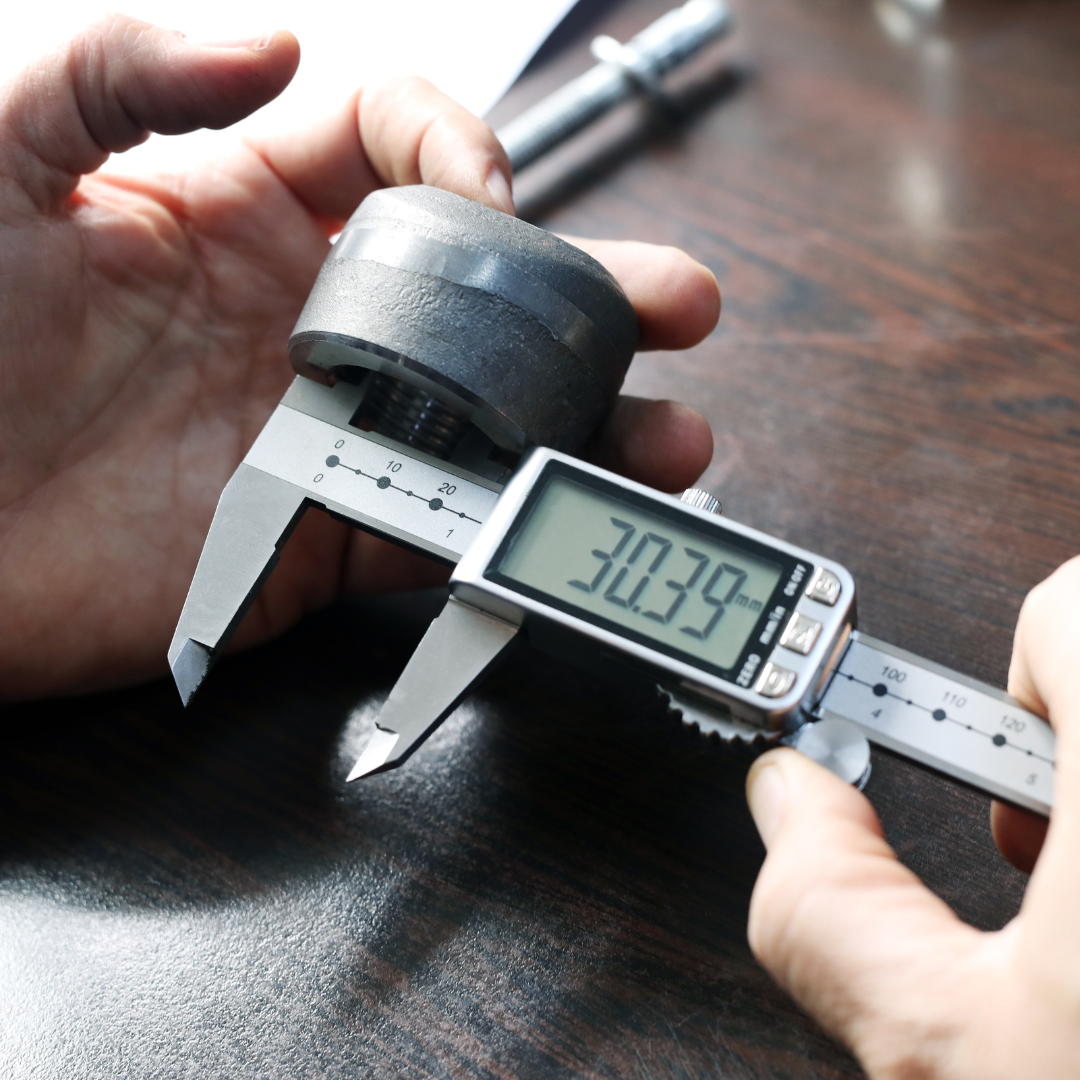
2. Micrometers:
- Outside Micrometers: Measure the outside dimensions of an object with high precision.
- Inside Micrometers: Used for measuring internal dimensions.
- Depth Micrometers: Measure the depth of holes and slots.
-
-
Height Gauges:
- Used to measure the height of objects or mark items for machining processes.
- Come with digital, dial, or vernier scales.
-
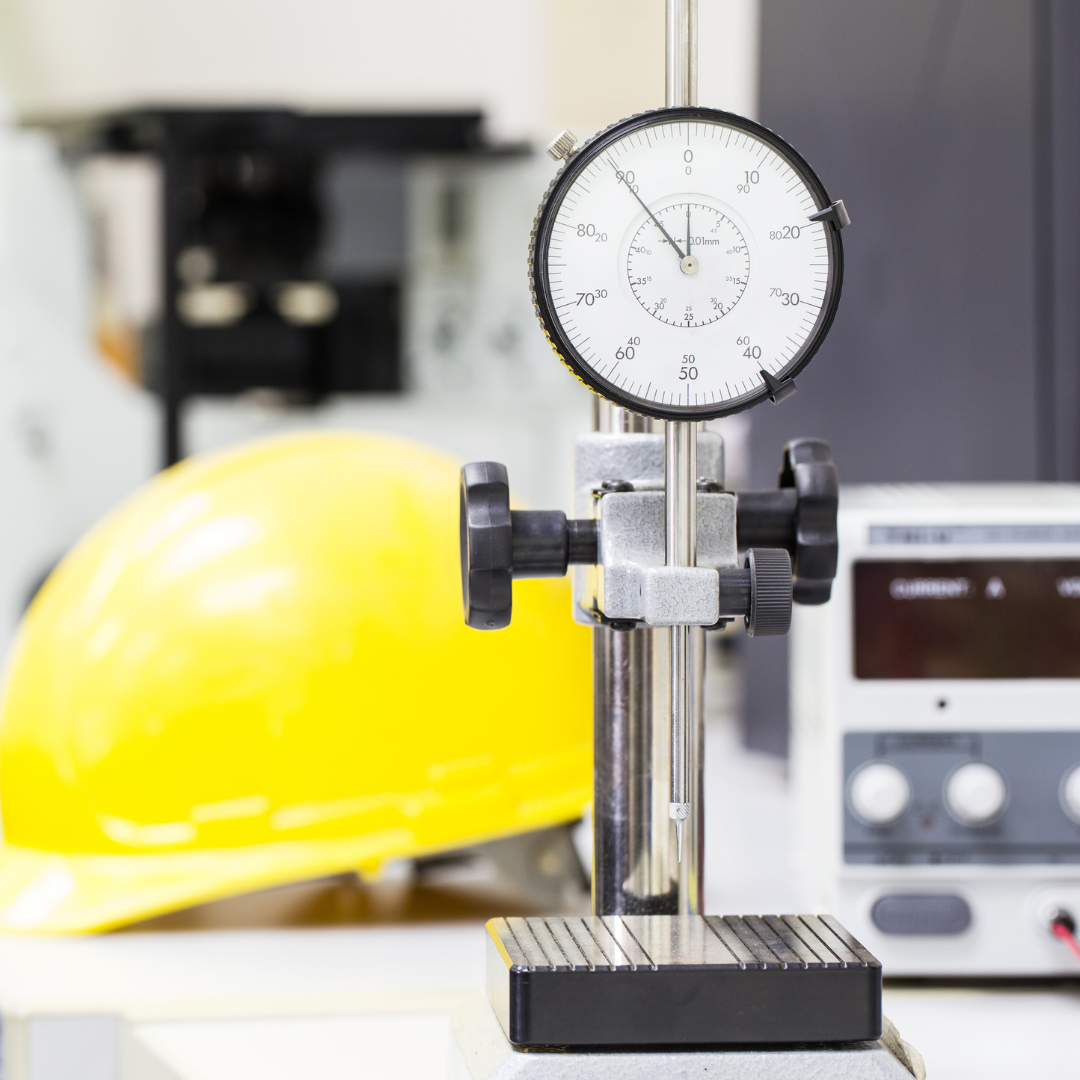
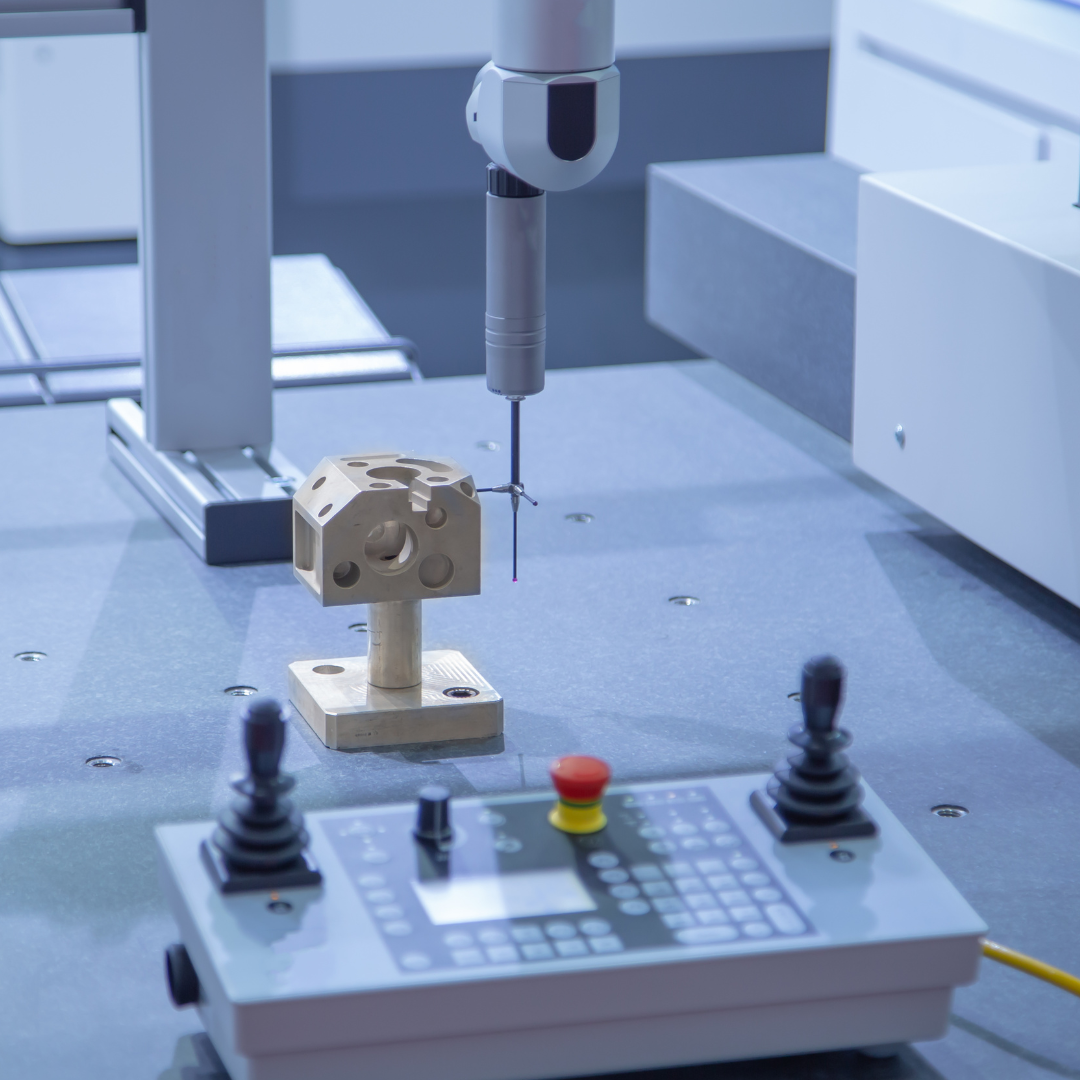
4. Coordinate Measuring Machines (CMMs):
- Provide highly accurate measurements of complex geometries.
- Used in manufacturing and quality control to ensure parts meet specifications.
-
5. Laser Scanners:
- Use laser technology to create detailed 3D models of objects.
- Commonly used in reverse engineering, inspection, and quality control.
-
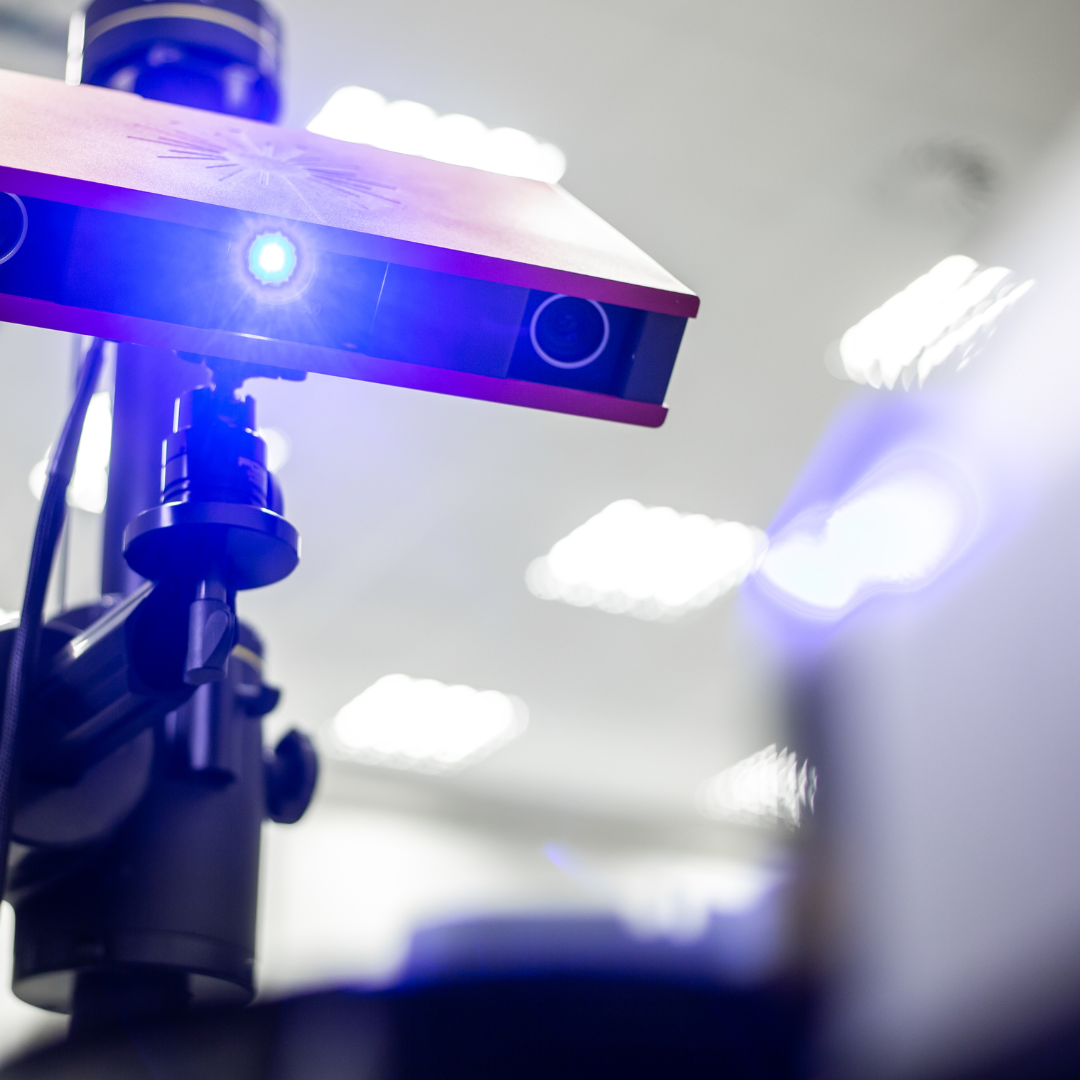
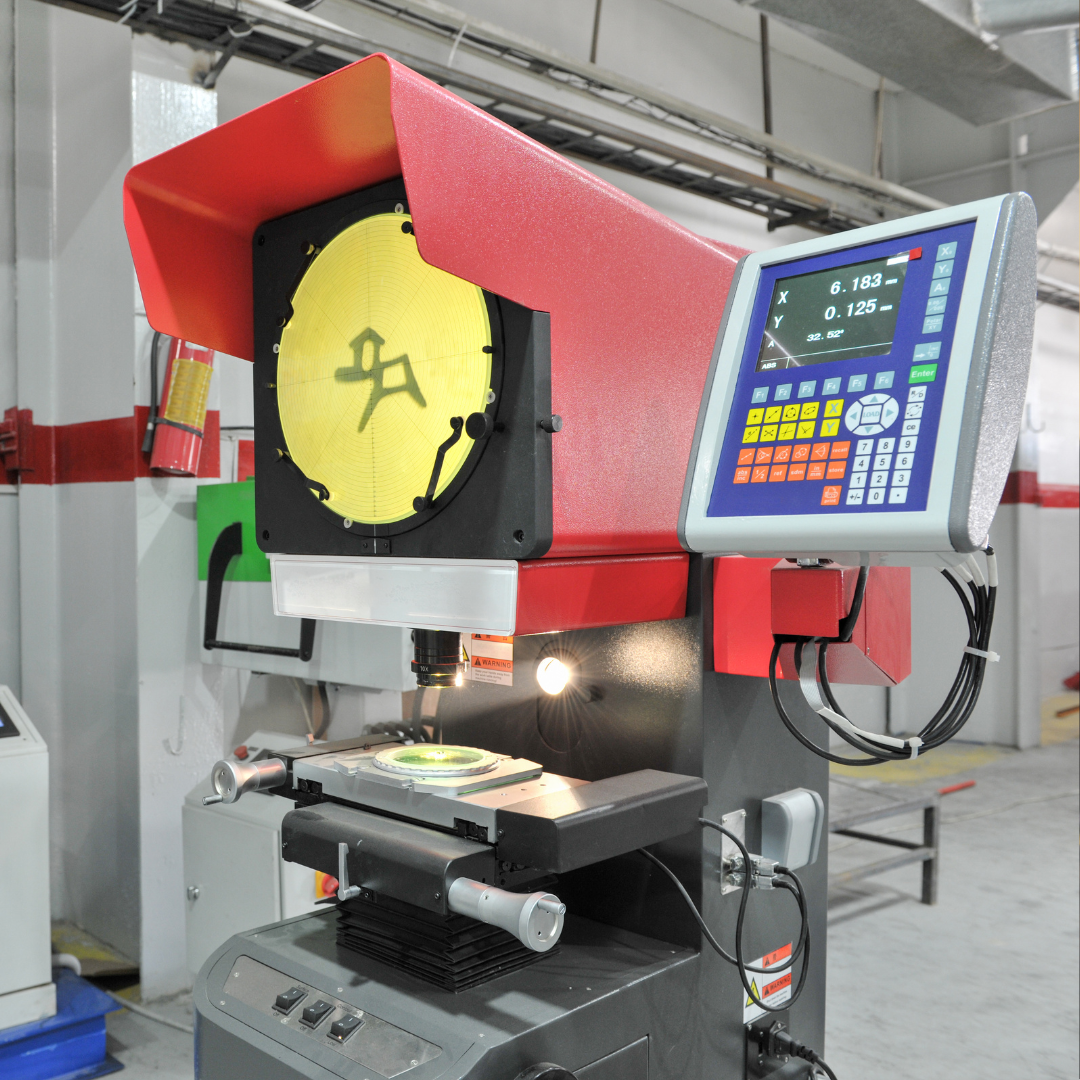
6. Profile Projectors:
- Magnify an object’s profile to allow for precise measurements.
- Useful for inspecting small or complex parts.
-
Applications of Dimensioning Equipment
- Manufacturing: Ensures parts are made to exact specifications, reducing waste and improving product quality.
- Quality Control: Verifies that products meet industry standards and customer requirements.
- Logistics: Measures package dimensions for accurate shipping costs and space optimization.
- Automotive Industry: Ensures parts fit together correctly, maintaining safety and performance standards.
- Aerospace: Requires high precision to ensure safety and functionality of components.
Importance of Calibration
Calibration is the process of comparing the measurements of a device with a known standard to ensure its accuracy. Over time, dimensioning equipment can drift from its original calibration due to wear and tear, environmental factors, or accidental damage. Regular calibration is essential for:
- Maintaining Accuracy: Ensures that measurements remain reliable and consistent.
- Compliance: Meets industry standards and regulations, such as ISO and ASTM.
- Reducing Downtime: Prevents costly production errors and delays.
- Customer Satisfaction: Ensures products meet quality expectations, building trust and reputation.
Dimensioning equipment is a cornerstone of quality control and precision manufacturing. By understanding the different types of tools available and the importance of regular calibration, businesses can ensure their products meet the highest standards of accuracy and reliability. Investing in the right dimensioning equipment and maintaining it properly is crucial for any industry where precision matters.
Choosing the Right Dimensioning Equipment
Selecting the right dimensioning equipment depends on several factors:
- Precision Requirements: Higher precision may be needed for industries like aerospace or medical devices.
- Measurement Range: Choose equipment that can handle the size of the objects being measured.
- Ease of Use: Digital devices can be more user-friendly, reducing the chance of errors.
- Environment: Consider the working environment, as some equipment may be more durable or resistant to conditions like humidity or dust.
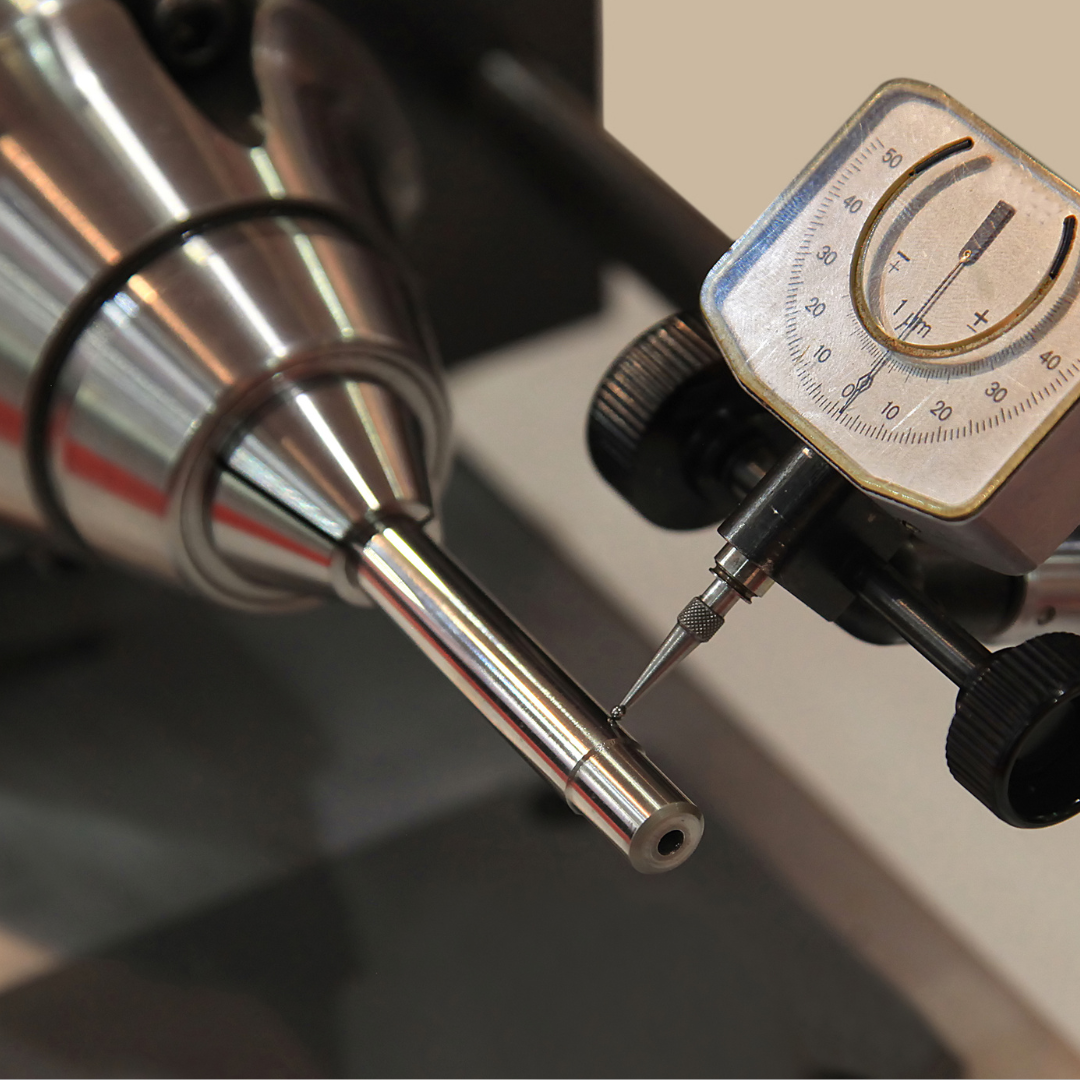
Let Us Help You Find the Right Floor Scale For Your Application
Have questions about dimensioning equipment?
For questions or assistance, please contact your local Michelli Weighing & Measurement location. Our team of experts is here to help you achieve optimal performance from your measurement equipment.
